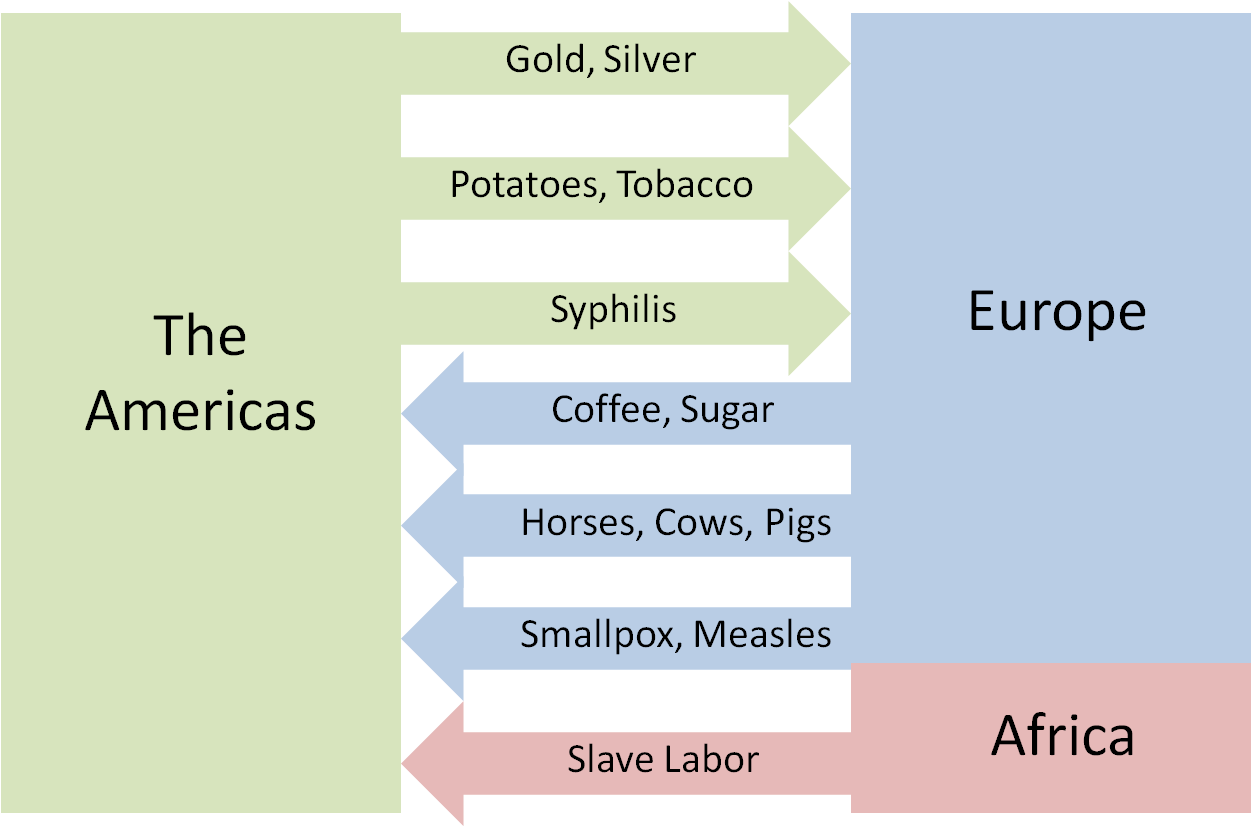All AP US History Resources
Example Questions
Example Question #1 : Geography, Environment, And Peopling 1801–1848
That any person who is the head of a family, or who has arrived at the age of twenty-one years, and is a citizen of the United States ... shall, from and after the first January, eighteen hundred and sixty-three, be entitled to enter one quarter section or a less quantity of unappropriated public lands
-United States Senate, Homestead Act, 1862
The passage of the Homestead Act is consistent with a political philosophy associated with what other historical event?
The Mexican-American War
The raid on Harper's Ferry
The Whiskey Rebellion
The Dred Scott decision
The Mexican-American War
Like the Homestead Act, the Mexican-American War was supported by the belief in Manifest Destiny, the attitude that America was destined to keep expanding westward.
Example Question #52 : Ap Us History

Which of the following best describes the impact on European population made by the exchange network depicted in the diagram?
The arrival of new agricultural products allowed for more population growth
Economic conditions led to less competition between nation states
The rise of a slave trade led reformers to challenge the government
New diseases led to social unrest and instability
Mass migration from Europe to the Americas led to shrinking populations in Europe
The arrival of new agricultural products allowed for more population growth
Note: the diagram was created by the question writer.
Nutritious and calorie-dense foods brought from the New World supported European population growth. As the population of Europe grew, in part based on the availability of richer and more varied agricultural products, so too did the demand for those products.
Example Question #1 : Geography, Environment, And Peopling 1801–1848
"Have not results in Mexico taught the invincibility of American arms?...The North Americans will spread out far beyond their present bounds. They will encroach again and again upon their neighbors. New territories will be planted, declare their independence, and be annexed. We have New Mexico and California! We will have Old Mexico and Cuba! The isthmus cannot arrest--nor even the Saint Lawrence!! Time has all of this in her womb. A hundred states will grow up where now exists but thirty."
- DeBow's Commercial Review, 1848
Chief among the benefits of expansionism in the mid-nineteenth century was ___________________.
relieving the extreme population pressures in Eastern cities
increased recognition of the United States as a regional power
the assimilation of new groups into the American identity
the acquisition of valuable new resources
the addition of several new states into the union
the acquisition of valuable new resources
Though the new territories led to political disputes -especially as several sought statehood and questions arose about how to integrate existing populations into the United States- the access the new, fertile farm lands and natural resources (including gold and, later, oil) stood out as the most impactful benefit of expansion.
Example Question #14 : 1801–1848
Manifest Destiny is the belief that __________.
the United States had a God-given right to occupy all territory west of the Mississippi River
the United States was destined to own territory in Africa
the United States has a predetermined end date
the United States was destined to rule the entire Western Hemisphere
the United States had a God-given right to dictate internal politics to all countries within the Western Hemisphere
the United States had a God-given right to occupy all territory west of the Mississippi River
Americans were entranced by the territory west of the Mississippi River after Lewis and Clark returned to the East Coast from their expedition in 1806. They brought back tales of great riches and wide-open land, as well as fantastic new animals and plants. The American people, and therefore politicians, began to believe that it was America's destiny to ultimately stretch from one coast to the other.
Example Question #15 : 1801–1848
With which accomplishment is the Lewis and Clark expedition to the Pacific Northwest between 1804 and 1806 not credited?
They made contact with more than 55 unique Native American cultural groups.
They catalogued more than 180 new plant species.
They discovered a water route leading from the Mississippi River to the Pacific Ocean.
They discovered a route that led from St. Louis Missouri to Ft. Clatsop, Oregon.
They catalogued more than 120 new animal, bird and fish species.
They discovered a water route leading from the Mississippi River to the Pacific Ocean.
When Lewis and Clark embarked on their journey in 1804, one of their goals was to discover the "Northwest Passage," a rumored water route leading from the Mississippi River to the Pacific Ocean. Although they were able to travel for a great portion of their journey along various waterways, they were unable to find a continuous water route.
All AP US History Resources




